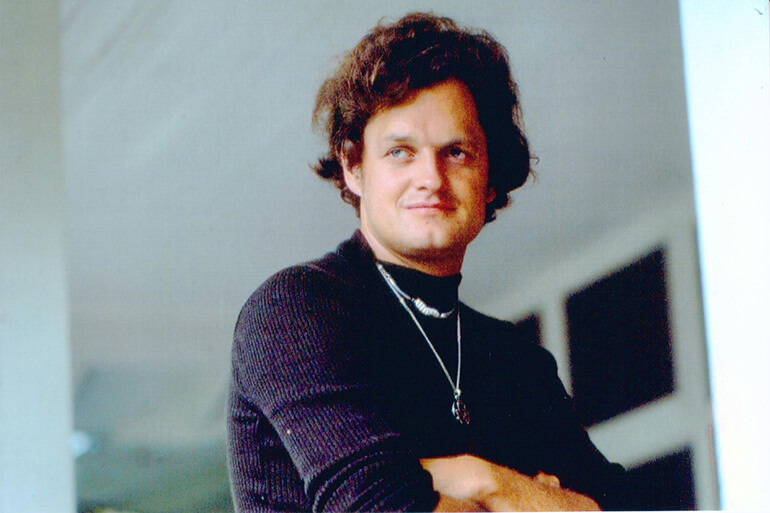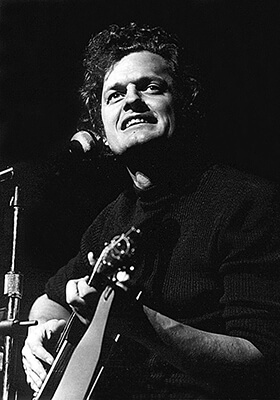HIFF World Premiere to Showcase Harry Chapin's Long Island Humanitarianism

In this world, there are a rare few people who are such a powerful force for good that wherever they go, they leave people feeling inspired and motivated to do some good of their own. In Harry Chapin: When in Doubt, Do Something, set to make its world premiere at the Hamptons International Film Festival next week, it’s evident that the late Long Island music icon was one of those people, and director Rick Korn was profoundly moved by his humanitarian message.
On a seemingly normal school day in 1974, Chapin came to Korn’s Plainview high school to perform a two-hour concert and teach the students about the hunger and poverty plaguing the world, and it opened the eyes of the future documentarian. “It was the best class I ever went to! It was entertaining; it was informative; it made me realize that there’s a world bigger than the town that I live in and that we’re all one,” Korn remembers. “What could I do in my life? I wanted to live up to that idea!” He adds that executive producer S.A. Baron was similarly inspired by Chapin’s visit to Lawrence High School, also on Long Island.
In the late ’90s, Korn interviewed Radio DJ Bill Ayres, who co-founded the WhyHunger organization with Chapin in 1975, for an unrelated documentary and a thought occurred to him, “I said to Bill, ‘How come no one’s ever done a documentary on you and Harry?’ And he said, ‘I don’t know. Why don’t you do it?'” And so, Korn set out to do just that, later presenting Chapin’s wife Sandy and son Jason with a treatment so well received that he was able to film Sandy’s interview for the documentary that same day. “She’s just an incredibly brilliant woman who has kept up the charity all these years,” Korn notes.

Chapin was an award-winning songwriter beloved by millions for hits such as “Cat’s in the Cradle” and “Taxi” and for his lifetime of humanitarian work, founding WhyHunger, Long Island Cares and the Harry Chapin Foundation before his fatal car crash in 1981, cutting his selfless life short at the age of 38. “Particularly now because of the pandemic—though we obviously started this film before the pandemic—it highlights how important Harry was to humanity,” Korn says. “Harry got his hands dirty. He didn’t just do a concert and talk about it; Harry really dug into what the real causes of hunger and poverty are and created programs that teamed up with President Carter and other bipartisan politicians to create programs that are helping people to this day.”
Chapin’s charitable work to tackle the problems of hunger, poverty, gender inequality, climate change and more inspired many to follow suit, including fellow music icons. “The thing that really surprised me is how loved Harry was by his contemporary music artists, like Billy Joel. That interview surprised me, because I knew they obviously were connected and they were friends, but I didn’t realize how close they really were—and I would say the same thing for people like Pete Seeger and Bruce Springsteen. I could go on and on of the people who were influenced by Harry, both musically and through his philanthropic efforts,” Korn says. “Just look at all the brilliant people that he inspired in his really short lifetime! That’s what we’re trying to do—carry Harry’s message forward in that regard.”
In researching Chapin, one detail that took Korn by surprise was that he is related to the documentary-pioneering Leacock family and even received an Academy Award nomination for his boxing documentary Legendary Champions. “I better understood how and why he created the music he created, because his songs are like mini films,” Korn explains. “From a creative standpoint, stylistically, I got him instantly.”
Korn’s uplifting documentary stands out from other musician biopics for its focus on the artist’s virtues, not vices. “I wouldn’t do a music artist film about their vices, which tends to sell,” Korn says. “You end up disliking the person at the end of it. We wanted to create a film where people walked out feeling totally inspired.” He continues, “One of the reasons why we wanted to launch this film before the election is to give an escape to people. When you look at all of our lives during the pandemic and what’s going on politically in this country—it’s been a rough year… We’re all attuned to the news and what’s going on in this country; there’s so much anger and divisiveness in this country. We really just want to give people 93 minutes of entertainment, enjoyment and inspiration, and Harry is the great communicator of that.”
Harry Chapin: When in Doubt, Do Something debuts at the Hamptons International Film Festival, running October 8–14 in a series of drive-ins and virtual screenings. Visit hamptonsfilmfest.org for more information and tickets.



